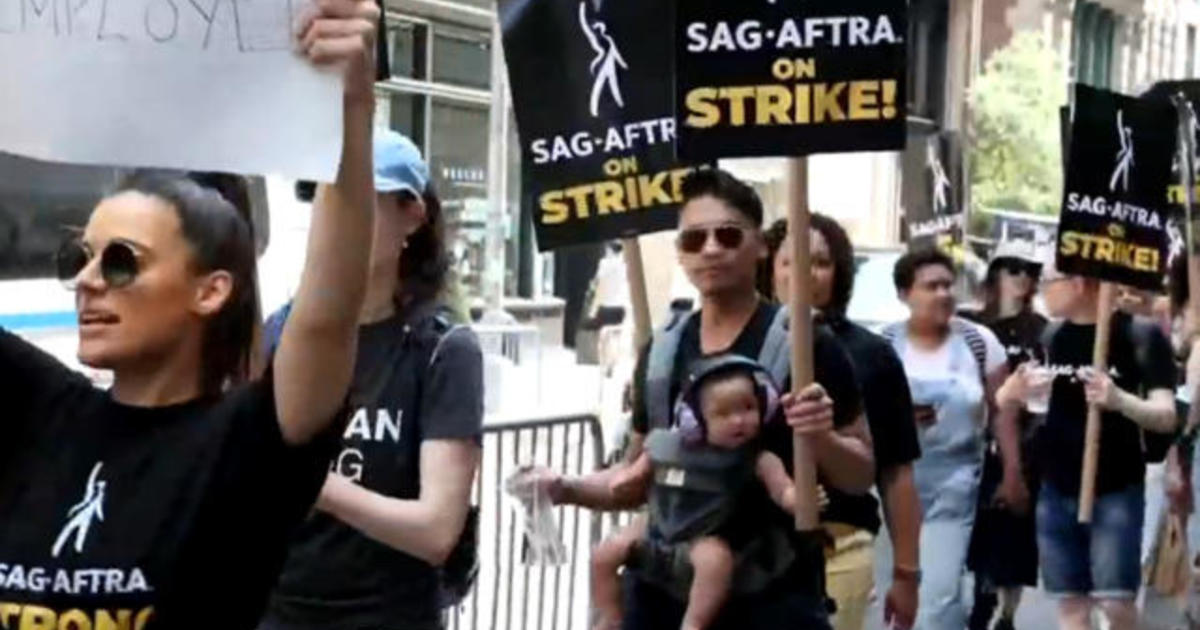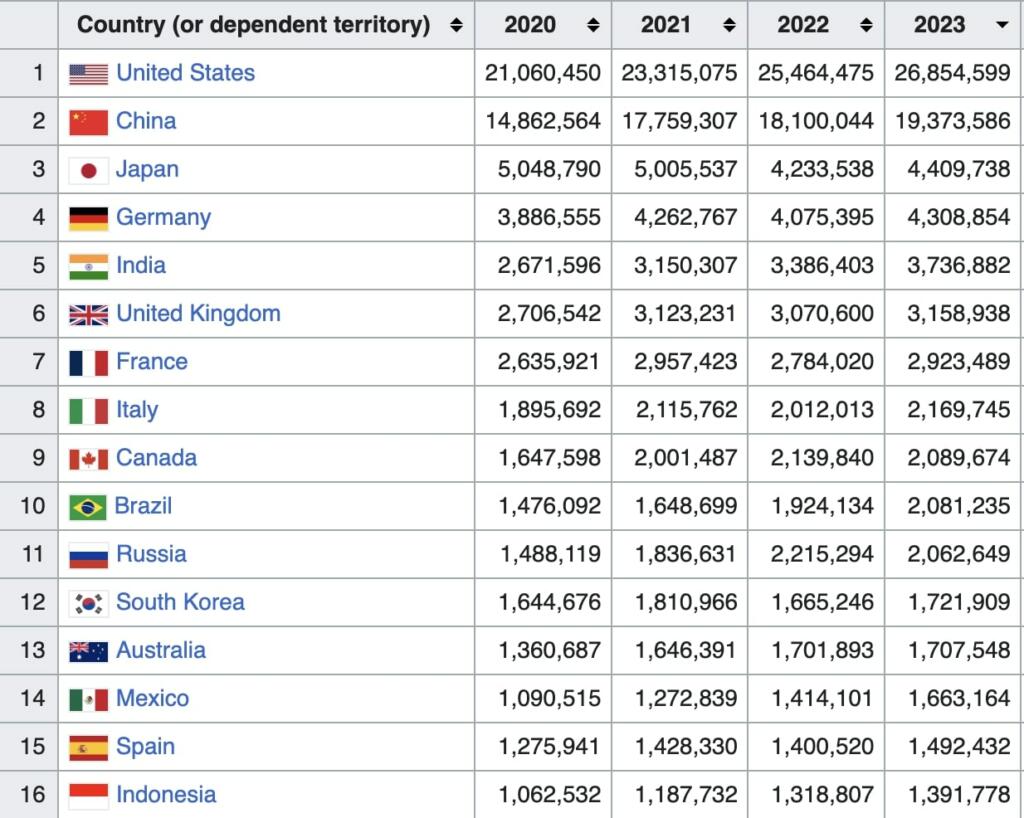Hollywood Strike: Actors Join Writers, Bringing Production To A Halt

Table of Contents
The Writers' Guild of America (WGA) Strike: A Foundation for the Current Crisis
The WGA strike, which began in May 2023, laid the groundwork for the current crisis. Their key demands highlighted the significant changes impacting the industry and the need for writers to adapt to the new landscape of streaming services and AI technology.
Key Demands of the WGA:
- Fair wages and residuals in the streaming era: Traditional television contracts provided writers with residuals based on reruns and syndication. Streaming services, however, often offer significantly lower compensation and limited or no residuals. The WGA seeks fair compensation reflecting the value of their work in the digital age.
- Protection against AI-generated content: The rise of artificial intelligence poses a significant threat to writers' livelihoods. The WGA demands protections to prevent the use of AI to replace human writers and ensure fair compensation if AI is used in the creative process.
- Improved working conditions: The WGA aims to improve working conditions, including minimum staffing levels, reasonable working hours, and an end to exploitative practices.
- Minimum staffing levels on productions: Adequate staffing ensures quality and prevents overworking writers, a key concern in the fast-paced world of television production.
The impact of the WGA strike has been widespread. Late-night television shows went dark, numerous film and television projects were postponed, and the entire industry felt the shockwaves. Shows like The Late Show with Stephen Colbert and Saturday Night Live were significantly impacted, and numerous film productions faced indefinite delays, affecting release schedules and costing studios millions.
SAG-AFTRA Joins the Fight: Actors Demand Fair Treatment
Following the WGA strike, SAG-AFTRA joined the fight, significantly escalating the crisis. Their concerns mirror many of the WGA’s, highlighting the shared challenges faced by creatives in the evolving entertainment landscape.
SAG-AFTRA's Key Concerns:
- Fair compensation for streaming projects: Similar to writers, actors often receive significantly lower compensation for streaming projects compared to traditional film and television. They are demanding a more equitable distribution of revenue.
- Regulation of the use of AI in the industry: SAG-AFTRA expresses serious concern over the use of AI in generating actors' likenesses and voices without their consent or compensation. They are pushing for strict regulations and protections.
- Improved health and pension benefits: Maintaining adequate health and pension benefits is crucial for actors, many of whom experience periods of unemployment between projects.
- Protection against self-tape auditions: While self-tape auditions have become increasingly common, SAG-AFTRA is seeking better working conditions and fair compensation for the additional work and expense involved.
Actors highlighted the particularly exploitative nature of self-tape auditions, often requiring actors to provide their own equipment and expend significant time and resources with little or no guaranteed compensation. The issue of AI also resonates deeply, with actors worried about their likenesses being used without consent or fair payment in future projects. Streaming services' compensation models are often opaque and far less lucrative than traditional contracts, compounding the actors' concerns.
The Economic Impact of the Hollywood Strike: A Wide-Ranging Crisis
The Hollywood strike's economic impact is staggering and far-reaching, affecting not only major studios but also countless individuals and businesses dependent on the entertainment industry.
Financial Losses for Studios and Production Companies:
Major studios are facing immense financial losses due to production delays and postponed releases. The cost of the strike is already in the billions of dollars, and the final tally is still unknown. Independent productions, with fewer resources, are being disproportionately affected, potentially facing permanent closure.
Impact on Crew and Supporting Industries:
The strike has thrown thousands of crew members, including camera operators, editors, and sound technicians, out of work. This unemployment has a devastating impact on their livelihoods and the local economies reliant on film and television production. Businesses providing catering, transportation, and other services to the industry are also severely impacted.
The economic impact extends far beyond Hollywood. Tourism in cities frequently used as filming locations is negatively affected. Restaurants and businesses that cater to the film industry are seeing revenue plummet. Quantifying the overall economic damage is challenging, but the impact is undeniable and severe.
Potential Outcomes and Resolutions: What's Next for Hollywood?
The resolution of the Hollywood strike remains uncertain, with both sides needing to find common ground.
Negotiation Strategies and Potential Compromises:
Potential compromises might involve adjustments to streaming compensation models, clearer regulations regarding AI usage, and improvements to healthcare and pension plans. Mediation could play a key role in finding mutually agreeable solutions.
Long-Term Implications for the Industry:
The strike could lead to fundamental changes in the industry, impacting how content is created and distributed. It may also create a precedent for future labor disputes and increase awareness of the need for better working conditions and fair compensation for creatives in the digital age. The future of the entertainment industry depends greatly on the outcome of this strike.
Conclusion:
The Hollywood strike, uniting writers and actors in a powerful demonstration, represents a seismic shift in the entertainment industry. The demands for fair compensation, protection from AI, and improved working conditions are critical for ensuring a sustainable and equitable future for everyone involved in film and television production. The actors' strike and writers' strike demonstrate the need for significant changes within the industry. The long-term consequences of this labor action are still uncertain, but one thing is clear: the entertainment landscape is undergoing a fundamental transformation.
Call to Action: Stay informed about the developments in the Hollywood strike and its potential long-term impact on your favorite shows and movies. Continue to follow our updates on this evolving situation as the industry navigates this critical period in its history. Learn more about the Hollywood strike and how you can support the actors and writers fighting for fair treatment. Understanding the intricacies of the Hollywood strike and its potential long-term consequences is crucial for anyone interested in the future of the entertainment industry.

Featured Posts
-
 Worlds Fourth Largest Economy Californias Economic Success Story
Apr 26, 2025
Worlds Fourth Largest Economy Californias Economic Success Story
Apr 26, 2025 -
 Denmark Accuses Russia Of Spreading False Greenland News To Fuel Us Tensions
Apr 26, 2025
Denmark Accuses Russia Of Spreading False Greenland News To Fuel Us Tensions
Apr 26, 2025 -
 Using Ai To Analyze And Transform Repetitive Scatological Data Into A Podcast
Apr 26, 2025
Using Ai To Analyze And Transform Repetitive Scatological Data Into A Podcast
Apr 26, 2025 -
 Californias Economic Rise Now The Worlds Fourth Largest Economy
Apr 26, 2025
Californias Economic Rise Now The Worlds Fourth Largest Economy
Apr 26, 2025 -
 Investing In Musks Future A Look At The Market For Private Company Stakes
Apr 26, 2025
Investing In Musks Future A Look At The Market For Private Company Stakes
Apr 26, 2025
